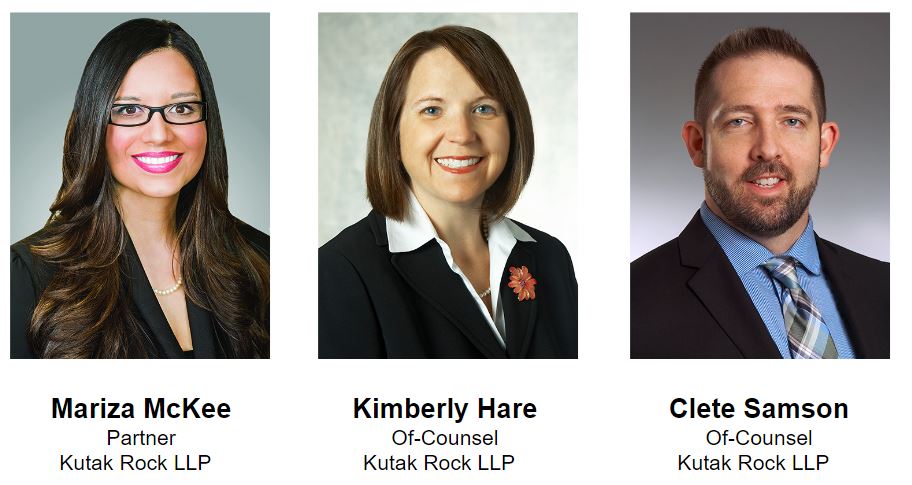Regional Center Compliance Audits
On March 20, 2017, U.S. Citizenship and Immigration Services (USCIS) announced the launch of the EB-5 Regional Center Compliance Audit Program. The program was characterized as an additional way to enhance EB-5 program integrity and verify regional center applications and annual certifications.
The audit process, as described by USCIS on its website, will include: (1) reviewing a regional center’s Application for Regional Center Designation Under the Immigrant Investor Program (Form I-924), its Annual Certification of Regional Center (Form I-924A), and associated records; (2) reviewing public records and available information about the regional center; (3) verifying the information submitted with the applications and annual certifications; and (4) conducting site inspections and interviews with personnel to confirm that the information provided in the applications and certifications is accurate.
Voluntary Nature of the Audits
Without specific statutory authority to issue subpoenas as part of the newly announced audit program, USCIS has publicly characterized these audits as “voluntary” and the USCIS website specifically states that if a regional center “expresses an unwillingness to participate in the site inspection, the visit will be terminated.” Exactly how voluntary the program truly is remains unclear. USCIS notes on its website that if a regional center declines to participate in an audit, USCIS “may follow-up with [the regional center] separately regarding compliance ….” USCIS does not indicate how the separate follow-up regarding compliance will differ from the voluntary audit. USCIS’ website further notes that if the site inspection is terminated at the regional center’s request, the audit team will still “complete the audit report using the data available and indicate that the site inspection was terminated at the request of the regional center.”
Regardless of the voluntary nature of the audit program, regional centers should be prepared. Although we can assume USCIS will provide some advance notice to a regional center prior to commencing an audit, its website states that regional centers should be prepared to present any information submitted with the applications or certifications and should “immediately provide any readily available documents and information that the audit team requests to verify information provided in the applications or certifications” during the site inspections.
Parallel Example – I-9 Compliance Audits
Due to the lack of statutory and regulatory authority specifying the procedure for regional center compliance audits, regional centers are left to speculate as to what a USCIS-led audit would entail. Following the mantra of “how you do anything is how you do everything,” the Form I-9 audit process utilized by the U.S. Department of Homeland Security to inspect a company’s compliance with employment verification requirements provides an illustrative parallel example for regional centers to consider as they design internal policies and procedures to prepare for their first audit.
In early 2009, U.S. Immigration and Customs Enforcement (ICE) rolled out a revised worksite enforcement strategy designed to prioritize Form I-9 compliance by utilizing civil and administrative tools, including Form I-9 inspections, civil fines, and debarment to cultivate a culture of compliance and reduce the amount of illegal employment of unauthorized individuals. As part of this relaunch of the worksite enforcement program, ICE hired hundreds of auditors, most with accounting backgrounds, and placed them in ICE field offices across the country.
Once ICE hired its auditors, it developed a target list of companies to audit based on information received from other investigative agencies (inter-agency information sharing) or through random selection of companies. ICE auditors commence audits by serving the selected company with a Notice of Inspection and administrative subpoena providing the company three business days to produce its Forms I-9 and other documents for inspection. After gathering the documents, an ICE auditor performs the audit. Once the audit is complete, the ICE auditor issues various notices to the company including: a Notice of Suspect Document letter, which lists employees working under potentially fake or fraudulent documents; a Notice of Intent to Fine, which specifies the violations found and levies a fine for each violation; or a Notice of Compliance, which informs the company that it is in compliance with the employer verification regulations. If a Notice of Intent to Fine is issued, the company has due process rights to defend itself against the civil fines.
What to Expect
If USCIS follows a similar approach to the I-9 audit process, regional centers can expect the following if they are chosen for a regional center compliance audit:
(1) a brief amount of advance notice before being requested to provide copies of documentation including applications, certifications, and associated records;
(2) an auditor, likely hired by the Fraud Detection and National Security Directorate (FDNS) unit of USCIS, with specialized knowledge in corporate structures and other capital investment information required on the Form I-924 and Form I-924A, will likely be the first person to contact the regional center and will likely oversee the document collection and review;
(3) some amount of direct interaction with the auditor, including site visits and tours, email correspondence and telephone follow-up;
(4) the auditor will issue a final audit report that outlines the regional center’s compliance rating and highlights discrepancies within the applications and certifications that will likely be made a part of the regional center’s record;
(5) a regional center may be given an opportunity to review the final audit report and amend applications and correct discrepancies within a specified time period; and
(6) in the event of an adverse action taken as a result of the audit, such as a denial or revocation of an already approved application, the regional center will likely have some sort of an appeal right or right to a hearing.
Regardless of the procedure used by USCIS, regional centers are strongly advised to immediately seek counsel if and when they are served with advance written notice of a USCIS regional center audit. Experienced counsel will be able to: (1) utilize the advance notice of the audit to review and prepare the regional center’s documentation, (2) negotiate and navigate the scope of the audit on the regional center’s behalf, and (3) serve as the regional center’s point of contact with USCIS during the audit. Counsel may also be able to help regional centers avoid adverse actions taken by USCIS by creating and communicating a plan for correction of any discrepancies discovered during the audit.
Conducting Internal Audits – Considering Interagency Referrals
Additionally, regional centers are urged to conduct their own internal audits to assess and address compliance risk areas prior to being contacted by USCIS. An internal audit should include not only a review of the regional centers applications, certifications, and supporting documents, but also compliance with securities laws, including, the Securities Act of 1933, the Securities Exchange Act of 1934, the Investment Company Act of 1940, and the Investment Advisers Act of 1940, as they relate to the regional center’s business practices and their involvement in raising EB-5 capital in conjunction with its new commercial enterprises or new commercial enterprises that have entered into a sponsorship or similar agreement with the regional center. For example, complete investor subscription documentation, offering documents and any supplemental disclosure given to investors, and copies of agreements with anyone involved in the marketing of the regional center’s EB-5 investment opportunities should be reviewed.
Regional centers should expect that USCIS will refer any questionable findings from these audits to other government agencies such as the Securities Exchange Commission (SEC) and the Department of Justice (DOJ). As stated in the SEC’s Office of Investor Education and Advocacy and USCIS joint Investor Alert on the EB-5 Program released on October 1, 2013, the USCIS and SEC have announced “a strong partnership with an emphasis on fostering EB-5 Program integrity” and it is anticipated that the two agencies will continue coordinating “at the case-specific and programmatic levels.”
Audit Response Plans
Moreover, regional centers (similar to companies that have ICE raid response plans in place to prepare for unexpected visits from ICE) should also develop an audit response plan that designates an EB-5 point person who will be responsible for interacting with the USCIS auditor in the event of an audit. The point person should be generally aware of the EB-5 requirements and should be capable of quickly accessing any and all documentation needed to establish EB-5 compliance. The point person should be the only employee authorized to discuss the regional center’s EB-5 compliance and to provide site tours to the auditor. The point person should literally not leave the side of the auditor during the site inspections and should document anything and everything that is done by the auditor, including what documents are taken from the facility.
A regional center is best served by being proactive in verifying its compliance with USCIS requirements and securities laws prior to the start of an audit. An internal audit conducted by reputable parties may shorten the audit process or possibly eliminate it entirely.









